How to rebuild a city with Karam Alkatlabe

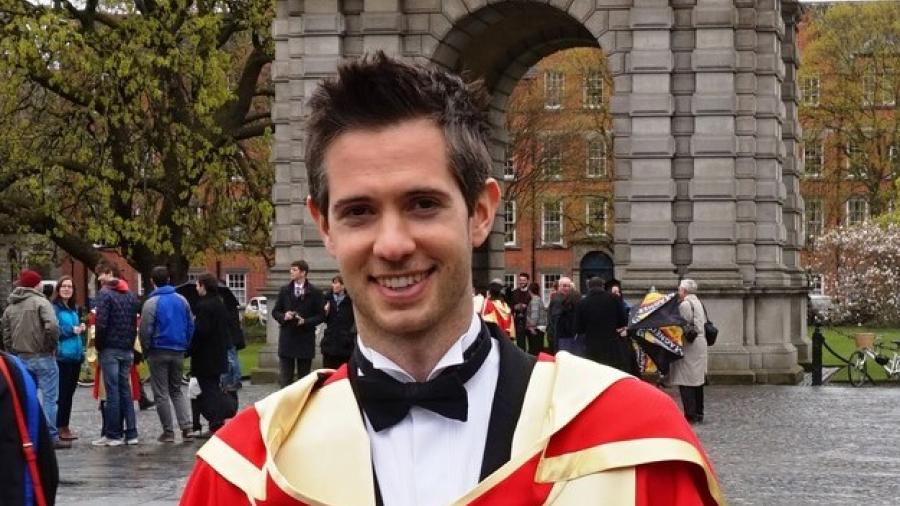
"The best piece of advice I've ever been given applies to my time at Wolfson: 'Don’t be sad because it’s over, smile because it happened'".

How did you come to study at Wolfson College?
I came to Wolfson in October 2009 to enrol for the MPhil in International Relations. I applied not thinking much of my chances of being admitted, but here I am to tell my story! I was delighted to become a member of Wolfson College, which turned out to be an extremely vibrant, close-knit community just a stone’s throw away from the Sidgwick site, with many interesting personalities in a beautiful and leafy part of Cambridge. Wolfson quickly became a true home away from home, and I remember how hard it was to leave for the Christmas break.
What is your current occupation and how did you get into this role?
I am currently Senior Research Associate at UCL in the Centre for Global Higher Education. I research the effects of Brexit on UK universities. Having done an undergraduate degree in Law and Political Science in France, an MPhil in International Relations in the UK, and a PhD in Higher Education Policy in Ireland, as well as a year-long Erasmus exchange in Sweden, it seemed natural to join the Centre for Global Higher Education. This position enables me to investigate possibly the greatest challenges to UK higher education and research in modern times, as well as providing me with a chance to inform government policy at a time of intense uncertainty.
What do you most enjoy about your job?
I enjoy the freedom of inquiry and thought, and the opportunity to challenge current policy, through independent and rigorous data, beyond the “word on the street”.
How have your studies at Wolfson helped you in your career?
My interest in higher education policy stems partly from my time at Wolfson. I wrote my MPhil thesis on the impact of the Bologna Process on European integration, under the supervision of Dr Geoffrey Edwards at Pembroke College. My MPhil thesis really set me on track to investigate higher education policy further, and the relevance of EU policy-making for national administrations and universities. Meeting so many international students in the Club Room and at the Wolfson dining table for breakfast, lunch and dinner was also inspiring and provided the opportunity for great discussions.
What is your fondest memory of your time at Wolfson?
Watching the 2010 South Africa World Cup with everyone in the Jack King room; morning tennis sessions on the court behind the Betty Wu Lee Gardens with Anna Rudzinski; continuously trying to convince Tom Harrington in the Karen Spärck Jones room that the Bologna Process was a real thing with policy implications, and not just an Italian cookbook. Chicken Burger Day in the canteen was also very big back then! We used to have competitions to see how many we could eat in one sitting. Tom, who was on the Cambridge Varsity rugby team, usually won.
What is the best piece of advice you've ever been given?
“Don’t be sad because it’s over, smile because it happened”. This applies to my time in Wolfson, for example.
Which person (living or historical) do you most admire and why?
Definitely Simone Veil. She was a World War II hero, a survivor, a women’s rights advocate, an inspirational leader with the credentials to bring Europeans together, and the first female President of the European Parliament. One of the greatest tragedies of modern history hit her family. How she overcame personal grief of an incomparable level after having been taken in Nice by Nazi soldiers in 1944, and losing nearly all her family to Nazi camps to become one of the most prominent politicians of France, as the health minister responsible for legalising abortion in 1975, is truly inspiring. While it is uplifting that she faced down prejudice, threats and insults to achieve this positive outcome for women’s rights, it is also a daunting reminder of how difficult it can be to break through conservative institutions and mind-sets, and an unsatisfactory status quo, of which the primary victims are the ones silenced in the first place.
Which book has had the greatest impact on you?
The Leopard, by Giuseppe Tomasi di Lampedusa. This is the story of a lost world, or a world about to disappear, during the Italian unification. It is about the plight of one small aristocratic Sicilian family, headed by Prince Fabrizio, caught in unstoppable change, in a time of great political and social turmoil, and how the family members face this. The historical and the personal are intertwined beautifully and inseparably. This story offers insightful glimpses into the different social classes, elaborate descriptions of Sicilian landscapes, food, and architecture, and amazing quotes upon which to ponder: “If we want things to stay as they are, then things will have to change” (Prince Fabrizio’s nephew Tancredi).
Also, Two Years’ Vacation by Jules Verne and Lord of the Flies by William Golding. These are quite similar stories, although the former has a more positive ending. The struggles for survival and dominance depicted by Verne and Golding are all too real; an unnerving reminder that even tropical paradise islands cannot help humans being humans.
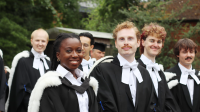
Graduation ceremonies are the culmination of students’ hard work and commitment, and a moment to celebrate the completion of their Cambridge degree.
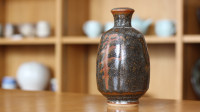
A display of works from the Bradshaw-Bubier studio pottery collection.
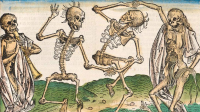
How we can develop ‘death activism’ – a variety of tactics and posthuman practices which celebrate death, its inevitability, its forms, from the slow to times of crisis, and how can trauma and mourning emerge as their own forms of expression, or even activism?
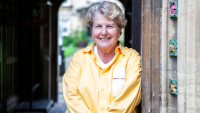
We are delighted to welcome Sandi Toksvig OBE as our speaker for Wolfson's prestigious Lee Lecture this year.

Join us for the 2024 Wolfson Research Event: an interdisciplinary academic conference organised by students to showcase the diversity of the research carried out by Wolfson students.







